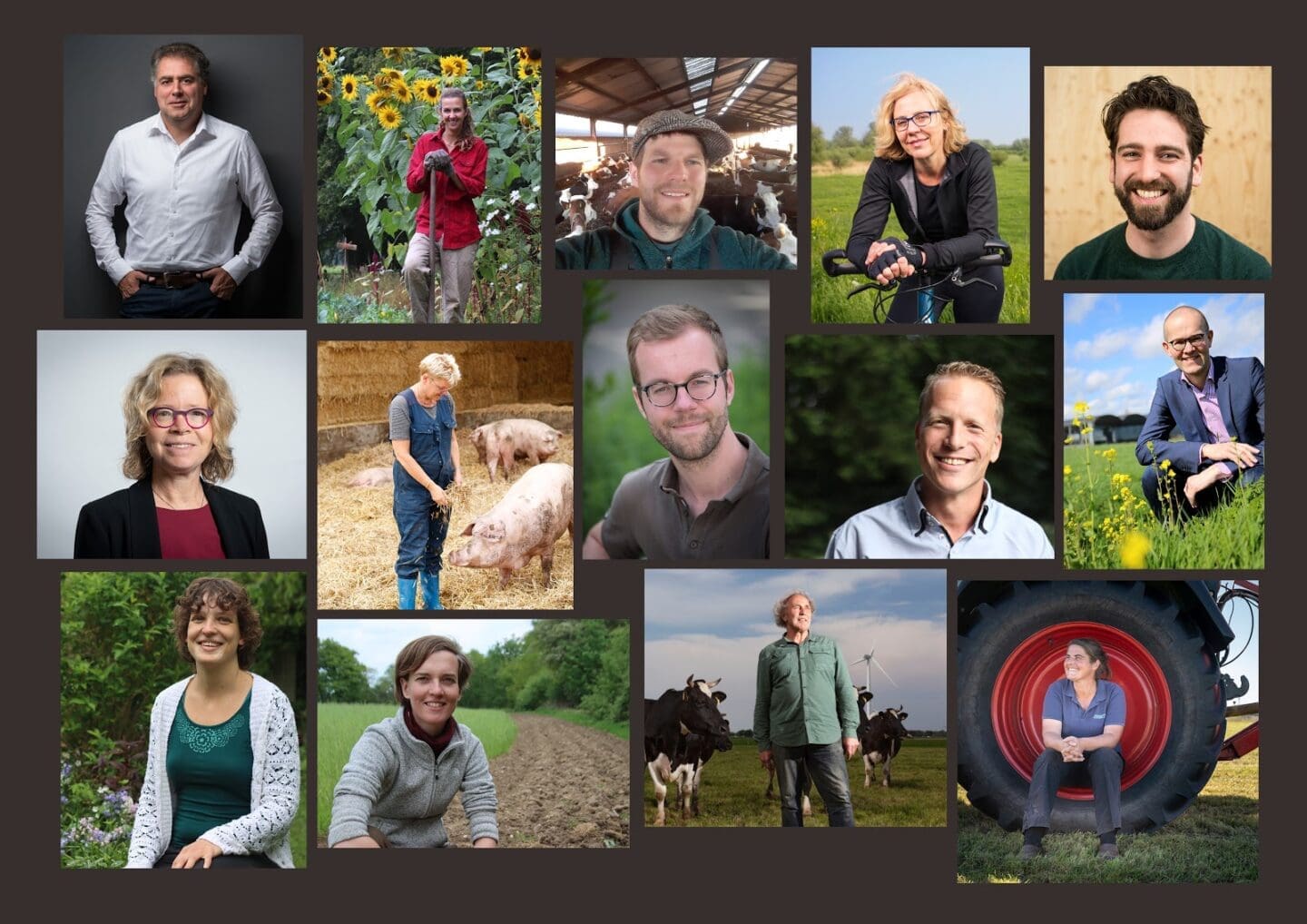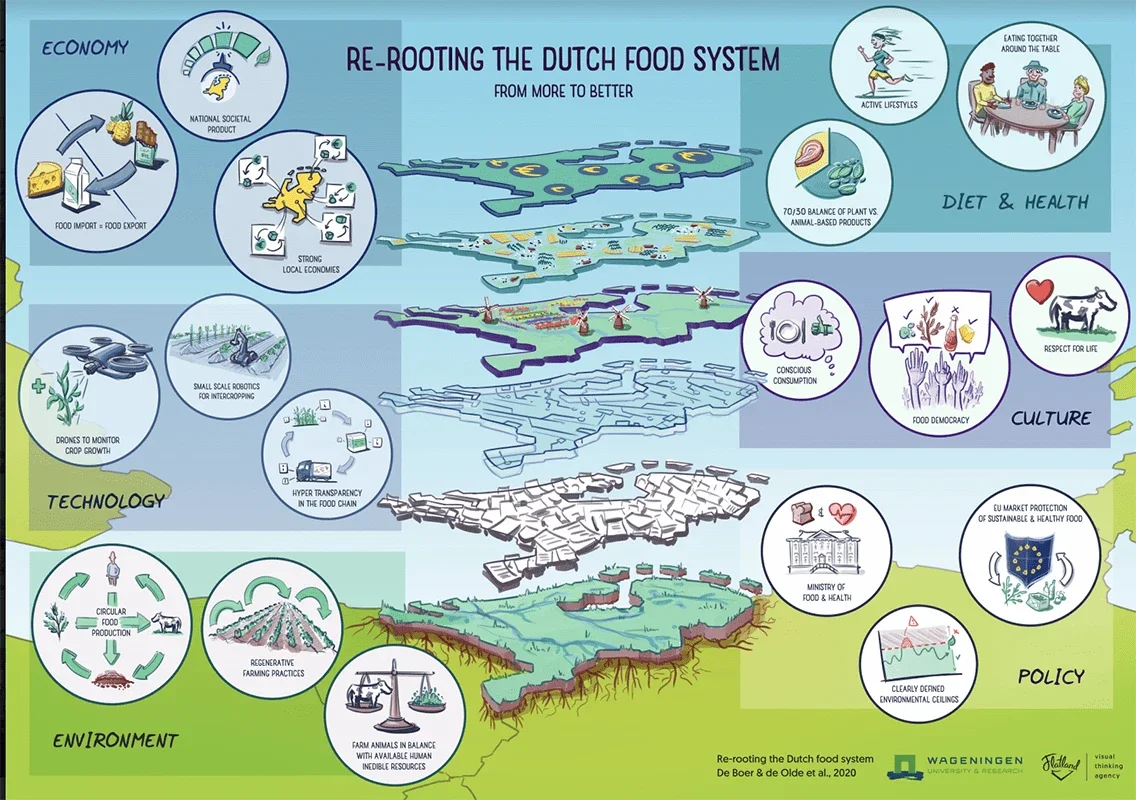This Vision shifts one of the world’s leading agricultural economies from an imperative of producing more to one of producing better. A flat, small, and densely populated country, the Netherlands’ agro-ecological location, unique governance structure, and rich history of trade earned this tiny country the position of number two global exporter of food (as measured by value) in 2017.
This great success has led to environmental challenges in the Netherlands, a small country with intensely cultivated fields between bustling cities and suburbs. Recent studies show that the country has exceeded its share in nitrogen, phosphorus, and greenhouse gas emissions.
Unhealthy and unsustainable eating patterns have also become widespread in the Netherlands. Currently, only 16% of adults consume the daily recommended amount of fruit and vegetables, and they eat an excessive amount of red and processed meat. About half of all adults are overweight. Most of the food consumed in the Netherlands is imported, and over 275 pounds of edible food is wasted per person per year.
In this Vision for 2050, the Dutch food system has replaced the current linear model with a circular one that employs practices and technologies to safeguard natural resources, regenerate soils, increase biological diversity, and promote clean water and air. Plant-based diets have become the norm, and cultivation of fruits and vegetables has been prioritized. If food losses or wastes are unavoidable, they are sustainably recycled back into the food system. Local people have learned to eat and appreciate what the land provides. The community wastes less, eats healthier, and is composed of conscious prosumers (i.e., both producers and consumers of food).
The Vision showcases how by the year 2050:
- Farmers cultivate vegetables and plants for direct human consumption, and intercropping is used to make the most of our valuable soils and promote biodiversity. No pesticides and herbicides are used, with pests being controlled biologically.
- Farm animals, including farmed fish and insects, are only fed byproducts that are unavoidable and inedible to humans, including food waste.
- Innovative technology, such as drones to monitor nutrient deficiencies in the land, are employed to work with nature and support regenerative farming practices.
- Delicious vegan and vegetarian foods are the default in supermarkets, restaurants, catered events, and school & university canteens.
- Seafood is sustainably harvested and consumed in proportion to its natural productivity.
This Vision is developed by scientists from Wageningen University and Research; representatives from three recently established farmer organizations (Toekomstboeren, Caring Farmers, and de Nieuwe Boerenfamilie); and environmental NGOs including the Foundation for Nature and Environment and the Centre for Agriculture and Environment and the Dutch Association of Biodynamic Agriculture.

The fourteen members of the team, who were all born and live in the Netherlands, are motivated by the belief that evolving the Dutch food system should be focused on creating the best future possible for generations to come.
Click here to explore the full Vision for the Netherlands in the year 2050.
To re-root the Dutch food system, we need to ensure that we produce and consume our food within the boundaries of our ecosystems. We also need to ask ourselves the question: what are the rights of humans and other animals in our food system?
